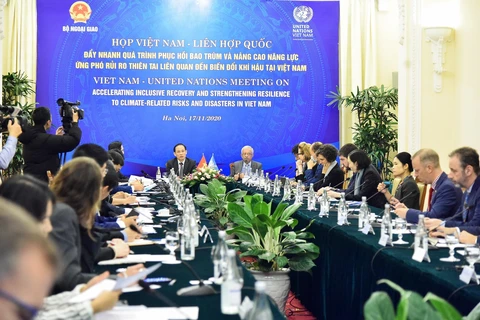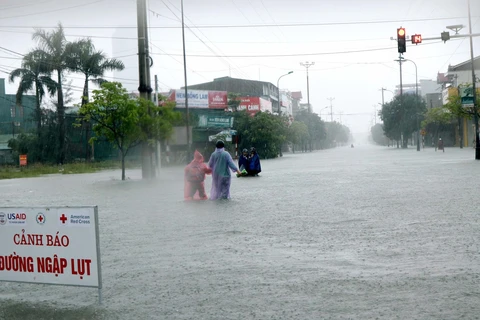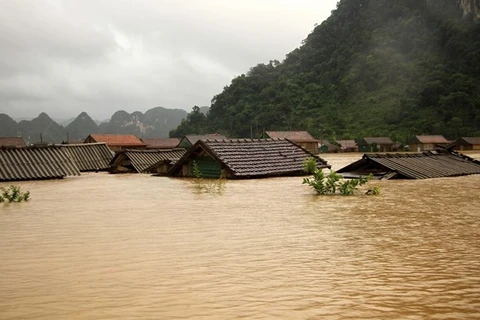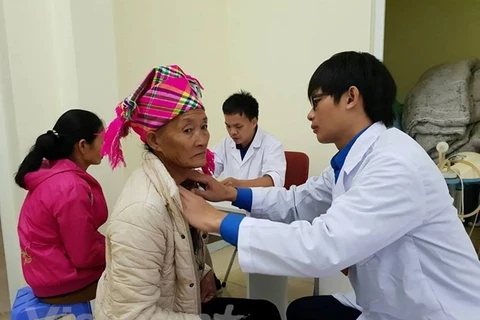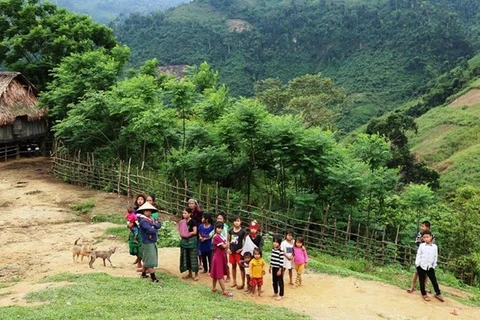 Rescuers use a boat to move children to safe places amid the historic flood in the central province of Quang Tri last year. (Photo: VNA)
Rescuers use a boat to move children to safe places amid the historic flood in the central province of Quang Tri last year. (Photo: VNA)The exchange of notes was inked by Japanese Ambassador Takio Yamada and UNICEF Representative in Vietnam Rana Flowers in the presence of Vietnamese Deputy Minister of Agriculture and Rural Development Nguyen Hoang Hiep.
The 5.7-million-USD project aims to build institutional capacity to support child-centred and climate-sensitive activities through policy advocacy to access 27,000 children under 18 in central Vietnam and the Mekong Delta, especially Soc Trang, Ca Mau and Bac Lieu provinces.
It will also improve water and sanitation services and conduct screening for severe acute malnutrition to make timely interventions in 2025.
Speaking at the event, Hiep thanked the Japanese Government and UNICEF for supporting risk reduction and other fields, including nutrition, healthcare, education and clean water supply, to meet basic needs of people in natural disaster-prone areas.
The signing of the document marked an important milestone in the close partnership among the Governments of Vietnam and Japan and UNICEF, he said.
Hiep further noted that his ministry hopes the Government of Japan and UNICEF will continue sharing experience and promoting Public-Private Partnership (PPP) in enhancing the resilience of natural disaster response projects and management system.
He also expected Japan and UNICEF to put forward recommendations for Vietnam, carry out behaviour-change campaigns, and enhance awareness of people and policymakers in disaster risk reduction in order to build a disaster-resilient society.
Flowers, for her part, said the climate crisis is a crisis of children’s rights. Vietnam is facing climate change-related disasters, like drought and saltwater intrusion in the Mekong Delta, as well as historic floods and landslides in central Vietnam last year, she said.
Many communities already hit by natural disasters are suffering adverse impacts from the COVID-19 pandemic, she noted, adding that the project will address vulnerable issues in multiple areas, namely clean water, sanitation, nutrition, education and children’s protection.
Additionally, the project does not only consider children as a vulnerable group but also an agent of change for a green, clean and safe community.
According to the UNICEP Children’s Climate Risk Index 2021, Vietnamese children and adolescents are at the highest risk of being affected by climate change./.
VNA
